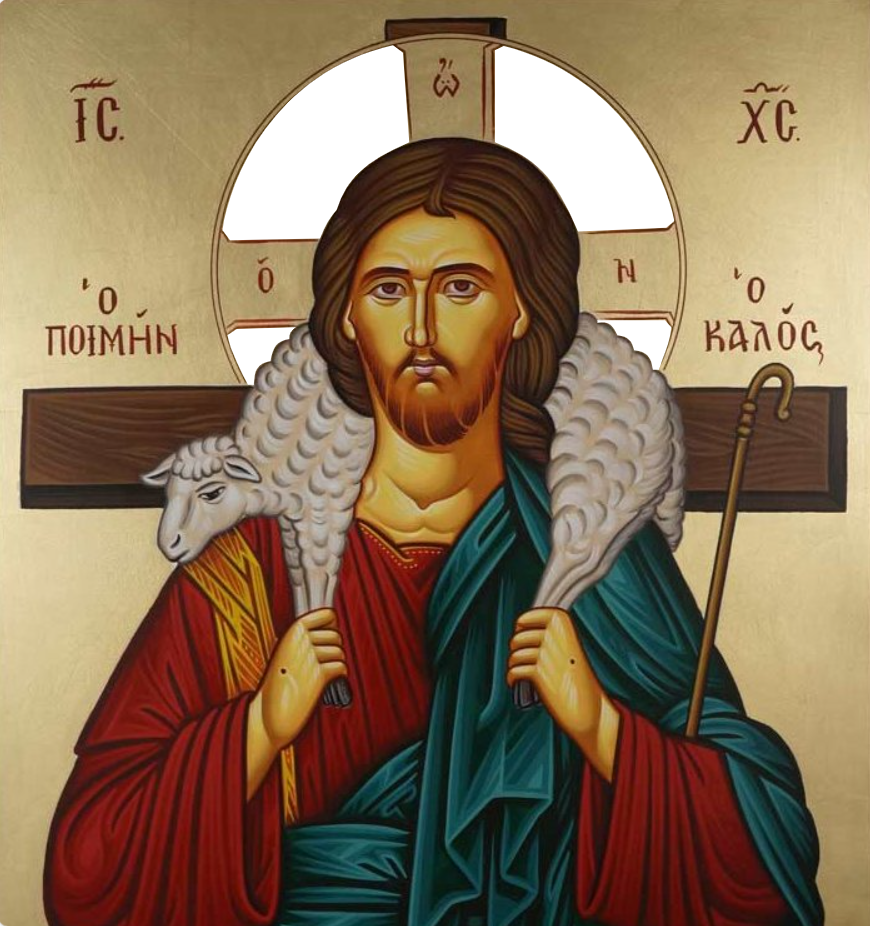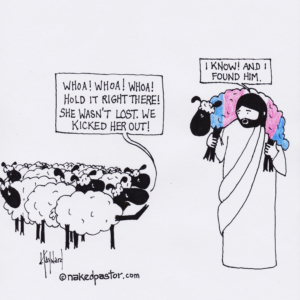Molded
Molded
June 8, 2025

My artistic skills leave much to be desired. But I have always loved looking at art, and art history was one of my majors in college. Since then, I have relished visiting numerous museums whenever I travel. Perhaps because I lack any artistic skills in any medium, I appreciate those with talent to create art. The fact that I have no talent or skills in this area was pointed out to me by my fifth-grade art teacher. I do not recall the exact assignment, but I vividly remember painting a picture of a vase with flowers. The vase that I painted had no base at its bottom, but instead came to a V-shape. The art teacher was quick to point out that my creation was silly, as the vase was incapable of standing up without a base to hold it up and therefore would collapse. My eleven-year-old ego was somewhat bruised after the negative comment made by the teacher. Only decades later did I think of a retort. If Picasso could paint a woman with one eye and three breasts with flesh in several colors, why couldn’t I paint a vase that rests on a point? (more…)

 The recent Olympics in Paris were quite a spectacle. From the unusual opening parade on the Seine River to the amazing story of US gymnast Simone Biles, the Olympics were an impressive competition to behold. Nevertheless, the event was not without its controversies. What struck me, in particular, was the storm surrounding the women’s boxing match and the boxer from Algeria.
The recent Olympics in Paris were quite a spectacle. From the unusual opening parade on the Seine River to the amazing story of US gymnast Simone Biles, the Olympics were an impressive competition to behold. Nevertheless, the event was not without its controversies. What struck me, in particular, was the storm surrounding the women’s boxing match and the boxer from Algeria. The architectural layout of a traditional Orthodox Church is something that I have always loved. Usually, the conventional interior design of an Orthodox church has three main sections, the narthex or vestibule, the nave or main part of the church/temple, and the sanctuary or the altar area. While I imagine that most people do not think much about the vestibule or narthex section of a church, traditionally it is an essential part of the liturgical rites of the Orthodox Church. Those preparing for baptism, the catechumens were to remain in this area and were prohibited from entering the main part of the church. It was also the place penitents were relegated to stand during the Divine Liturgy until the end of their penitential period. Today, many of the divine services and mysteries of the Church, begin in the narthex. For example, baptisms, marriages, funerals, and certain Lenten and Holy Week ceremonies are called to start in the vestibule. Today, in many Orthodox Churches the vestibule is the place to purchase and light candles or find parish bulletins, but rarely is this area given much of a second thought by most Orthodox Christians. The important sections are usually seen as the nave or church proper as well as the sanctuary, behind the iconostasis or icon screen.
The architectural layout of a traditional Orthodox Church is something that I have always loved. Usually, the conventional interior design of an Orthodox church has three main sections, the narthex or vestibule, the nave or main part of the church/temple, and the sanctuary or the altar area. While I imagine that most people do not think much about the vestibule or narthex section of a church, traditionally it is an essential part of the liturgical rites of the Orthodox Church. Those preparing for baptism, the catechumens were to remain in this area and were prohibited from entering the main part of the church. It was also the place penitents were relegated to stand during the Divine Liturgy until the end of their penitential period. Today, many of the divine services and mysteries of the Church, begin in the narthex. For example, baptisms, marriages, funerals, and certain Lenten and Holy Week ceremonies are called to start in the vestibule. Today, in many Orthodox Churches the vestibule is the place to purchase and light candles or find parish bulletins, but rarely is this area given much of a second thought by most Orthodox Christians. The important sections are usually seen as the nave or church proper as well as the sanctuary, behind the iconostasis or icon screen.  Watching a documentary recently about the detrimental and life-threatening struggles thousands of homeless children face, I was struck by the following words of one of the counselors: “Be the person you needed when you were younger.” The often-quoted words are believed to originate from Ayesha Siddiqi, an author and children’s advocate. The counselor made this impassioned plea to those who might be able to support the admirable work of helping homeless children. Those of us fortunate enough to live in relative peace and prosperity rarely think, for very long, about those considerably less fortunate than us. Understandably, we get caught up in our own world and may only take a few moments to think about or help those less privileged and in need. To be sure, those needing everything from a warm smile, a compassionate ear to a good meal, are all around us if we just took the time to look and think and act. When we act, listen or think only a portion of the time about others, we are not being the person that others need.
Watching a documentary recently about the detrimental and life-threatening struggles thousands of homeless children face, I was struck by the following words of one of the counselors: “Be the person you needed when you were younger.” The often-quoted words are believed to originate from Ayesha Siddiqi, an author and children’s advocate. The counselor made this impassioned plea to those who might be able to support the admirable work of helping homeless children. Those of us fortunate enough to live in relative peace and prosperity rarely think, for very long, about those considerably less fortunate than us. Understandably, we get caught up in our own world and may only take a few moments to think about or help those less privileged and in need. To be sure, those needing everything from a warm smile, a compassionate ear to a good meal, are all around us if we just took the time to look and think and act. When we act, listen or think only a portion of the time about others, we are not being the person that others need.  “Torch Song Trilogy,” written by Harvey Firestein in the 1970s, is a collection of three one-act plays in which the main character, Arnold Beckoff, wrestles with how to live his life, as a gay man, in a post-Stonewall New York City. Central to the plot of the story, later turned into a movie, are Arnold’s relationships with boyfriends, co-workers, his adopted son, and his mother. Arnold’s mother has a difficult time accepting her son’s homosexuality, and questions why he can’t just settle down and marry a “nice Jewish girl”. Arnold is frequently agitated and unhappy with his mother’s refusal to believe that he was “made this way”, in other words, made gay, by God. In one very funny scene, Mrs. Beckoff, “Ma”, in exasperation that her son thinks he knows more about his life than she does, states, “God, doesn’t know, my son knows.”
“Torch Song Trilogy,” written by Harvey Firestein in the 1970s, is a collection of three one-act plays in which the main character, Arnold Beckoff, wrestles with how to live his life, as a gay man, in a post-Stonewall New York City. Central to the plot of the story, later turned into a movie, are Arnold’s relationships with boyfriends, co-workers, his adopted son, and his mother. Arnold’s mother has a difficult time accepting her son’s homosexuality, and questions why he can’t just settle down and marry a “nice Jewish girl”. Arnold is frequently agitated and unhappy with his mother’s refusal to believe that he was “made this way”, in other words, made gay, by God. In one very funny scene, Mrs. Beckoff, “Ma”, in exasperation that her son thinks he knows more about his life than she does, states, “God, doesn’t know, my son knows.”  One of the things that good teachers know is that there is no such thing as a stupid or wrong question from their students. To suggest to a student otherwise is to immediately shut down the possibility of further learning by the student. Every teacher has encountered numerous instances in class when a student raises their hand and begins with one of these phrases “I know this is a stupid question… OR… I am probably wrong but…” It takes a lot of courage for many students to raise their hand, risking judgment by their teacher as well as their peers, to ask a question that might be perceived by others as a stupid one or the wrong one. To dismiss that student’s question is the complete opposite of what teaching is all about. The Socratic method of teaching, based on asking and answering questions, promotes critical thinking and draws out new ways of thinking and understanding.
One of the things that good teachers know is that there is no such thing as a stupid or wrong question from their students. To suggest to a student otherwise is to immediately shut down the possibility of further learning by the student. Every teacher has encountered numerous instances in class when a student raises their hand and begins with one of these phrases “I know this is a stupid question… OR… I am probably wrong but…” It takes a lot of courage for many students to raise their hand, risking judgment by their teacher as well as their peers, to ask a question that might be perceived by others as a stupid one or the wrong one. To dismiss that student’s question is the complete opposite of what teaching is all about. The Socratic method of teaching, based on asking and answering questions, promotes critical thinking and draws out new ways of thinking and understanding.